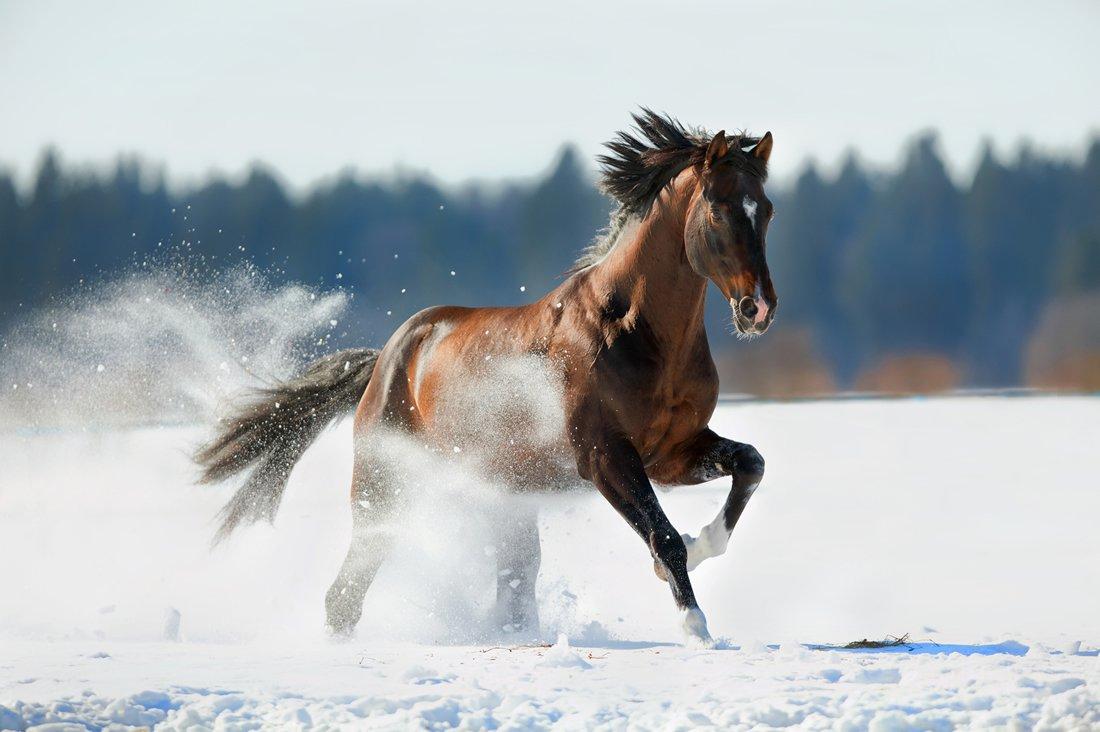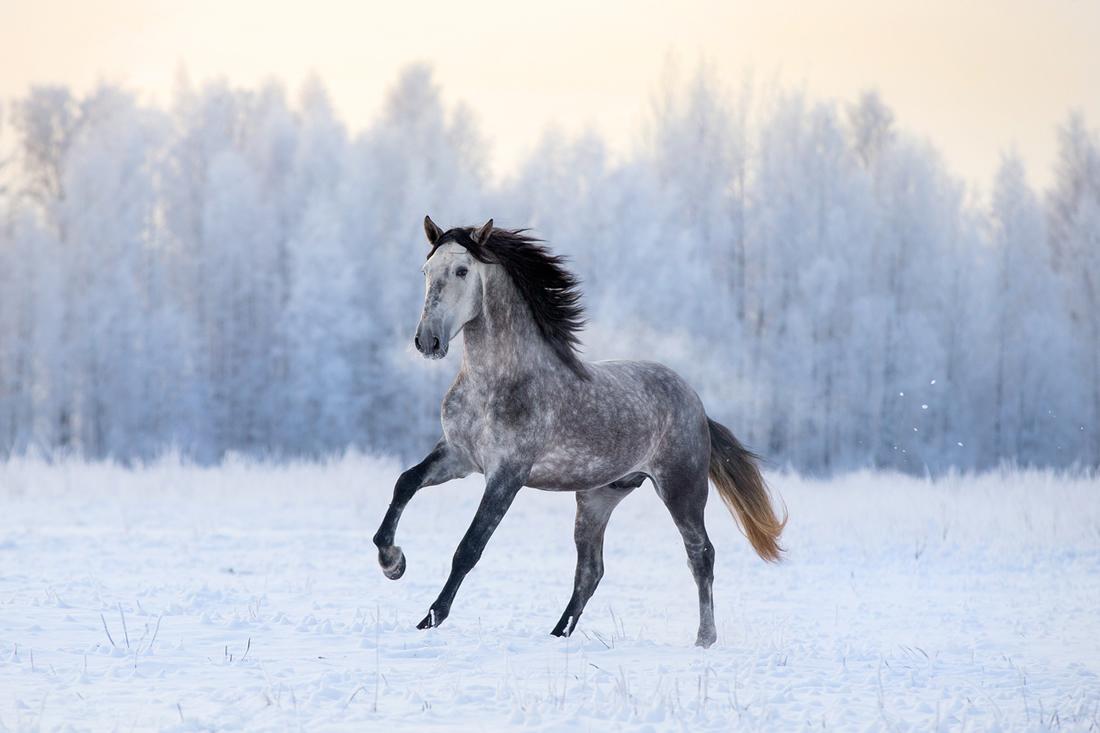
What Is the Best Winter Supplement for Horses?
As winter settles in and temperatures drop, horse owners face new challenges in maintaining their animals’ health and well-being. Cold weather, reduced turnout, and changes in diet can all affect a horse’s overall condition, making supplementation a key consideration for winter care. This blog post will explore the best winter supplements for horses to help them thrive during the colder months.
Understanding Winter Challenges for Horses
Before delving into specific supplements, it’s important to understand the unique challenges that winter poses for horses. Cold temperatures can increase horses’ energy requirements as they work harder to stay warm. Reduced grazing opportunities due to frozen or snow-covered pastures can limit access to fresh forage, potentially leading to nutritional deficiencies. Additionally, horses may experience joint stiffness and discomfort in cold weather, particularly if they have existing arthritis or other joint issues.

Key Considerations for Winter Supplements
When choosing a winter supplement for horses, several factors should be taken into account:
- Nutritional Balance: A good winter supplement should provide essential nutrients that may be lacking in the horse’s diet due to limited forage availability or changes in feeding practices.
- Joint Support: Many horses experience increased stiffness and joint discomfort in winter, so supplements containing ingredients like glucosamine, chondroitin, and MSM can help support joint health.
- Coat and Skin Health: Cold, dry air can lead to dull coats and skin issues in horses. Supplements with omega-3 fatty acids, biotin, and other skin-supporting nutrients can promote a healthy coat and skin.
- Immune Support: Winter weather can weaken the immune system, making horses more susceptible to illnesses. Immune-boosting ingredients such as vitamins C and E, zinc, and selenium can help support a healthy immune response.
Top Winter Supplements for Horses
- Omega-3 Fatty Acids: Omega-3 fatty acids, commonly found in flaxseed or fish oil supplements, offer numerous benefits for horses during winter. They support healthy skin and coat, reduce inflammation, and may also have immune-boosting properties.
- Joint Supplements: As mentioned earlier, joint health can be a concern in winter. Look for supplements containing glucosamine, chondroitin sulfate, MSM, and hyaluronic acid to support joint function and reduce stiffness.
- Vitamin and Mineral Supplements: Winter diets may lack certain vitamins and minerals, so a comprehensive vitamin and mineral supplement can help fill in the gaps. Pay attention to levels of vitamin E, vitamin C, selenium, zinc, and copper, among others.
- Electrolyte Supplements: Even in cold weather, horses can lose electrolytes through sweat during exercise. Electrolyte supplements help maintain proper hydration and electrolyte balance, which is crucial for overall health and performance.
- Probiotics and Digestive Aids: Changes in diet or limited turnout can disrupt horses’ digestive systems, leading to issues like colic or digestive upset. Probiotics and digestive aids support healthy gut flora and aid nutrient absorption.
Choosing the Right Supplement
With numerous winter supplements available on the market, choosing the right one for your horse can seem daunting. Consider the following tips to make an informed decision:
- Consult with Your Veterinarian: Before starting any new supplement regimen, consult with your veterinarian. They can assess your horse’s specific needs based on age, health status, activity level, and dietary intake.
- Read Labels Carefully: Pay attention to the ingredients and nutrient levels in supplements. Look for reputable brands that conduct quality testing and provide transparent labeling.
- Consider Individual Needs: Every horse is unique, so consider factors like age, workload, existing health conditions, and environmental factors when choosing a supplement.
- Monitor Your Horse’s Response: Monitor your horse’s condition closely once you start a new supplement. Look for improvements in coat quality, joint mobility, digestive health, and overall energy levels.
- Adjust as Needed: Your horse’s nutritional needs may change throughout winter and as conditions fluctuate. Be prepared to adjust supplement dosages or switch products if necessary.
Maintaining Proper Nutrition
In addition to supplements, ensuring your horse’s overall diet is well-balanced is crucial for winter health. Here are some key considerations:
- Forage Quality: Provide high-quality hay to meet your horse’s fiber and nutrient needs if fresh pasture is limited or unavailable during winter. Consider testing your hay for nutritional content to adjust supplementation accordingly.
- Hydration: Cold weather can decrease water intake, leading to dehydration. Provide access to clean, unfrozen water at all times, and consider offering warm water to encourage drinking.
- Feed Adjustments: Monitor your horse’s body condition regularly and adjust feed rations accordingly. Horses may need additional calories to maintain their body condition and stay warm in colder temperatures.

Environmental Management
Creating a comfortable living environment for your horse during winter can also contribute to their overall well-being:
- Shelter: Provide adequate shelter from wind, rain, and snow. Shelter can include well-ventilated barns, run-in sheds, or properly designed shelters in pastures.
- Bedding: Use appropriate bedding materials such as straw, shavings, or pelleted bedding to provide warmth and comfort in stalls.
- Turnout Time: While limited turnout may be necessary during extreme weather, strive to provide daily turnout in safe, dry paddocks or pastures whenever possible to promote exercise and mental well-being.
- Blanketing: Consider using blankets or sheets to help horses maintain body heat, especially for older horses, thin-coated breeds, or horses with health conditions that compromise thermoregulation.
Exercise and Mental Stimulation
Regular exercise is beneficial for maintaining muscle tone, joint health, and mental stimulation, even during winter:
- Indoor Riding Arenas: Utilize indoor arenas or covered round pens for riding or lunging sessions when outdoor conditions are unfavorable.
- Groundwork and Enrichment: Incorporate ground-based exercises, obstacle courses, or interactive toys to provide mental stimulation and prevent boredom during periods of limited turnout.
- Grooming Routine: Regular grooming not only promotes a healthy coat and skin but also allows for inspection of your horse’s body condition, hoof health, and any signs of discomfort or injury.
Monitoring Health and Seeking Veterinary Care
Despite proactive care, horses may still experience health issues during winter. Monitor your horse closely for signs of:
- Respiratory issues such as coughing or nasal discharge, which may indicate respiratory infections or allergies exacerbated by indoor confinement.
- Weight loss or changes in appetite, which could signal dental problems, digestive issues, or insufficient calorie intake.
- Lameness or stiffness, especially in older horses or those with existing joint conditions like arthritis.
- Skin issues such as dryness, dermatitis, or rain rot due to cold, wet conditions.
Work closely with your veterinarian to address any health concerns promptly. Regular veterinary exams, dental care, and vaccinations are essential components of winter horse care.
Conclusion
In conclusion, choosing the best winter supplement for your horse involves carefully considering their needs, winter challenges, and supplement ingredients. Omega-3 fatty acids, joint supplements, vitamin and mineral supplements, electrolytes, and digestive aids are all valuable options to support your horse’s health during the colder months. Consult with your veterinarian, read labels carefully, and monitor your horse’s response to ensure they receive the optimal winter care they deserve.
By prioritizing winter supplementation alongside proper nutrition, turnout management, and healthcare, you can help your horse stay healthy, happy, and comfortable throughout the winter season and beyond.




